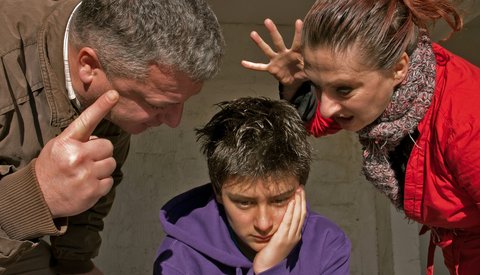Emotional triggers are strong reactions associated with past experiences and memories. Parents cannot avoid bringing emotional baggage into their relationships with children. Parenting style, attitudes, and reactions are
heavily influenced by one’s own attachment history. Parents are emotionally triggered when their reactions are excessive, when they have a “knee-jerk” response, and when patterns are repeating, despite their best efforts to change.
To avoid becoming emotionally triggered, it is important not to take a child’s negative behavior personally, and to be able to “look in the mirror.” It is helpful to be aware of the following mental and emotional reactions so that you can be constructive and supportive with your children:
• mindset: your belief system or internal working model (i.e., how you view self and others based on prior relationship experiences).
• self-talk: what you tell yourself about yourself, others, and situations (often out of conscious awareness).
• emotional reactions: feelings that are triggered (often fear,sadness and anger).
• attachment history: relationship patterns learned in the past (from your family-of-origin).
• body signals: physical reactions, especially in response to threat and
stress (increased heart rate and breathing,tight muscles,headaches).
• coping strategies: typical ways you respond to situations, such as
rejection, threat, anger, disappointment, and frustration (shut down,retaliate,blame self or others,feel confused or anxious).
Parents’ own background play a major role in how they react to their children, especially when they are displaying negative behaviors and attitudes (e.g., disrespectful,defiant,angry). By “looking in the mirror” – being self-aware- parents are more likely to be proactive rather than reactive, provide a healthy role model of coping, and remain a positive guiding presence for their children.


